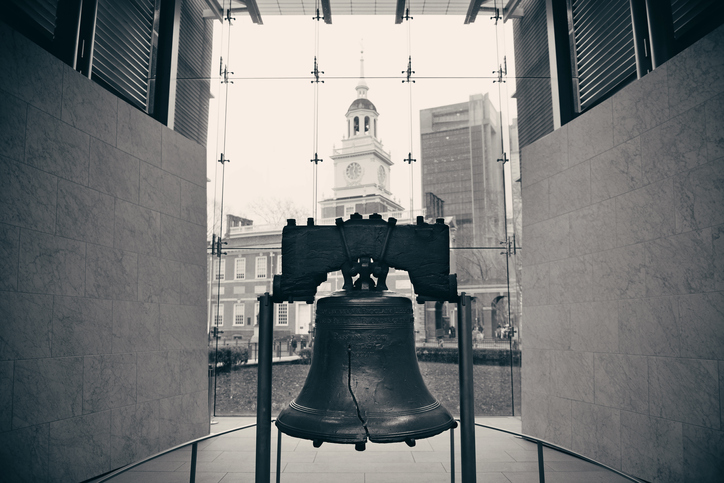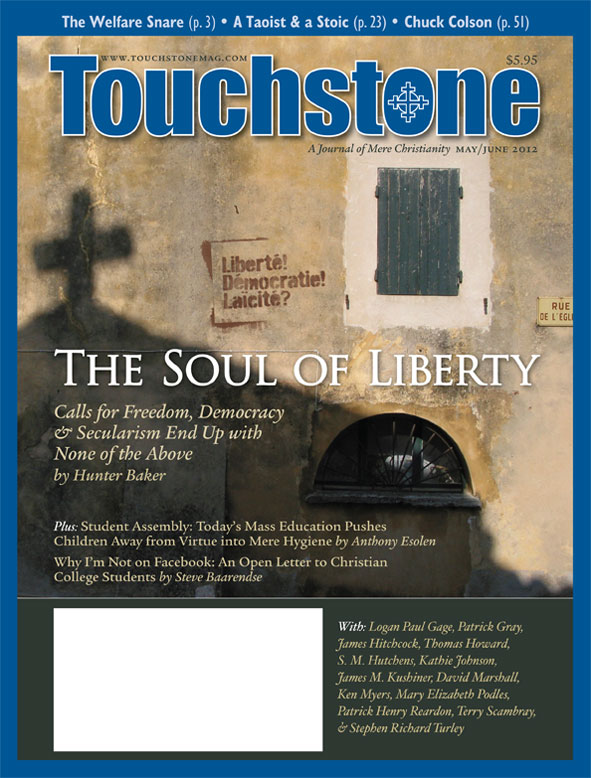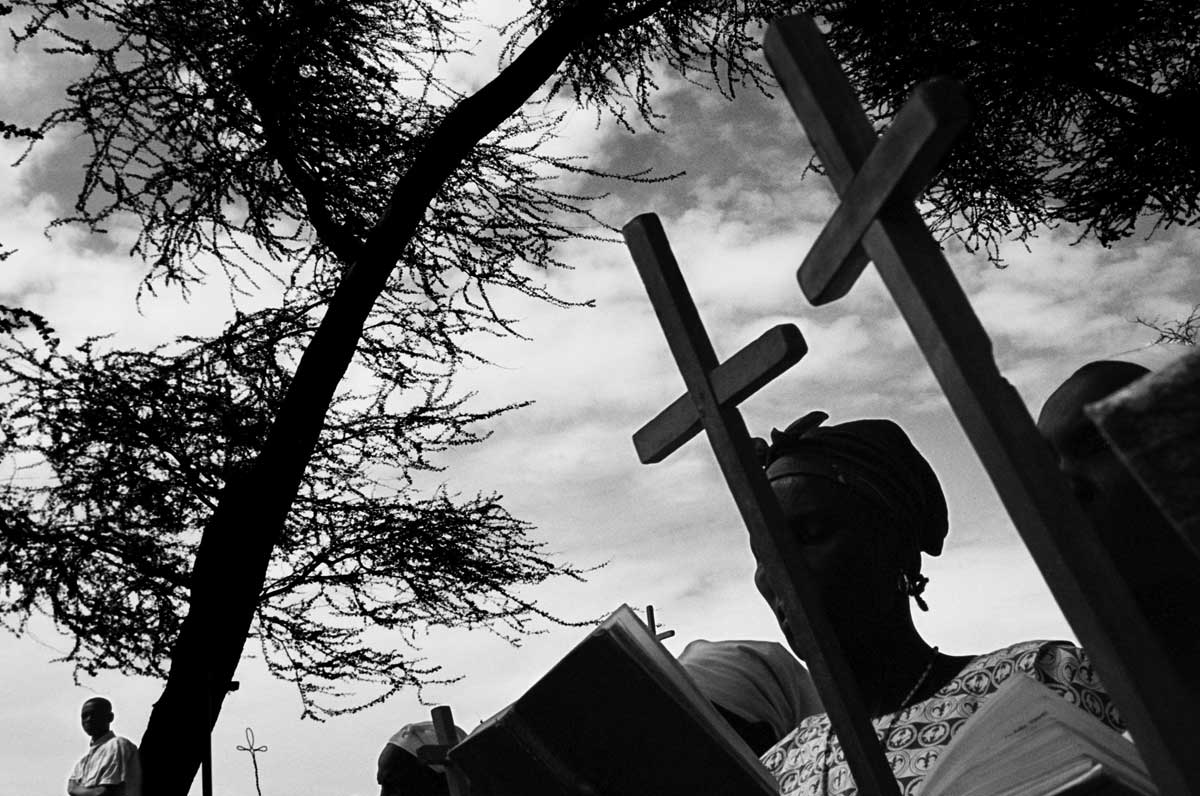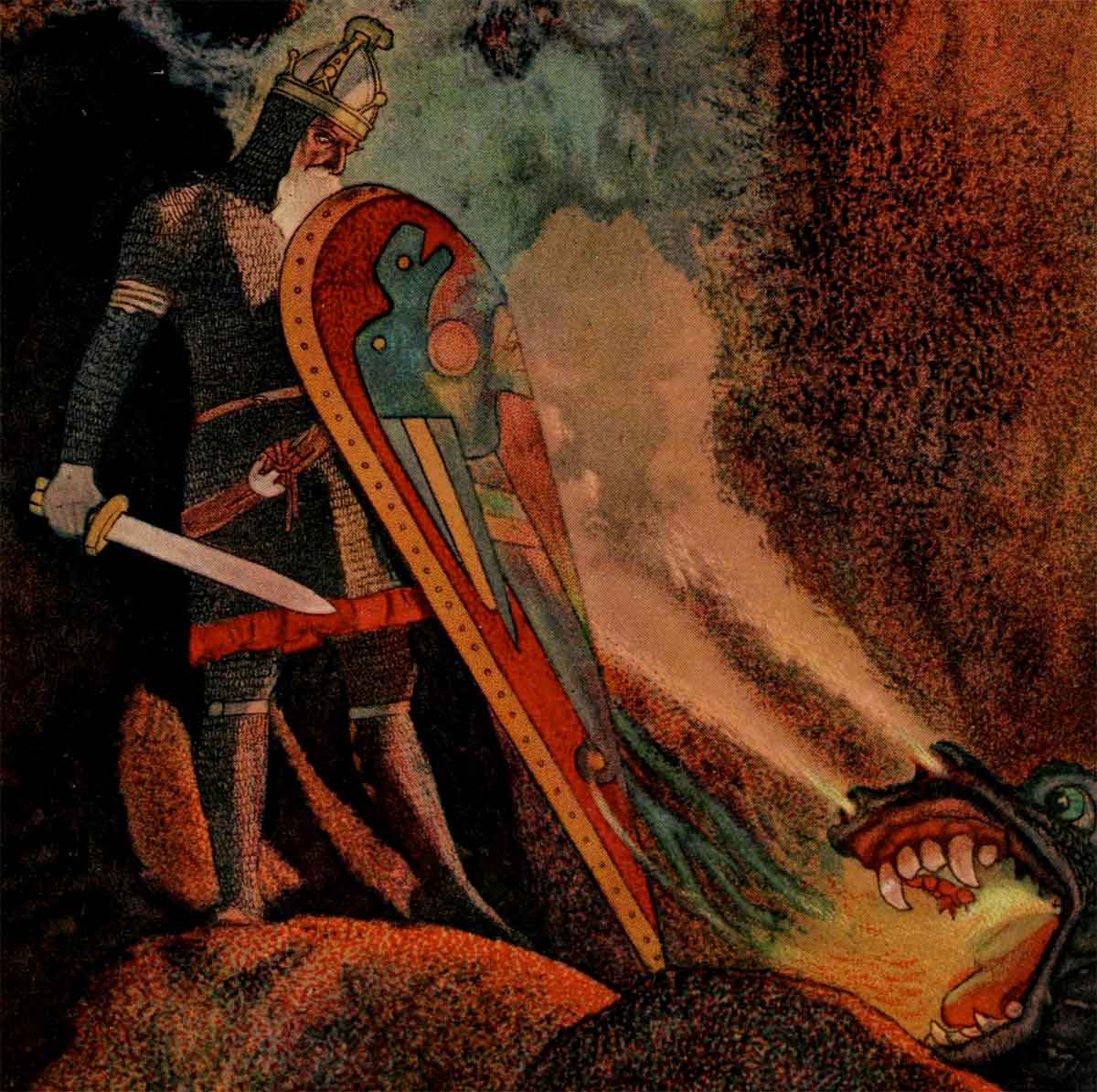The Soul of Liberty by Hunter Baker
Feature
The Soul of Liberty
Calls for Freedom, Democracy & Secularism End Up with None of the Above
by Hunter Baker
You can find a lot of interesting things on Twitter packaged in pithy statements of no more than 140 characters each. Some of you may recall that in the aftermath of the 2009 election in Iran, a number of protesters claimed that the government had tampered with the results to stay in power. Twitter was a key channel they used both to express their outrage and to receive support from sympathetic Westerners, many of whom shaded their profile pictures green as a sign of solidarity. I happened upon a number of short statements from students in Iran who asked for “Freedom, Democracy, and Secularism!”
Having studied the history of the West and paid particular attention to the question of religion and politics, this combination of concepts struck me as odd. But it obviously resonates with many Iranian students, who repeatedly use the Internet to call for this combination of political ideals. I find it again and again. They seem to believe it is the formula.
But do these three concepts belong together?
A New Revolution?
What the students in Iran are looking for is a new revolution. They don’t like the results of the earlier revolution of the 1970s, which produced the current theocratic regime by overthrowing a secular, nationalist dictator (the Shah of Iran) and replacing his rule with rule by Muslim clerics.
Of course, the Shah, though a “secular” ruler, did not have a great appreciation for democracy and freedom. This fact alone should give the students pause in their automatic association of secularism with freedom and democracy. There really is nothing inherent in the nature of secularism that would correspond to freedom or democracy. Secularism simply means that religious values and ideas are considered extraneous to public life. It might produce freedom from religion, but not necessarily political freedom.
The clerics did not like the secular Shah because he diminished their influence and presided over a more relaxed moral and cultural climate. He was more interested in reinforcing his own power than in protecting any rights or freedoms of the people. He was also basically friendly to the West. He governed based on his interest, which is a thoroughly secular thing to do.
The theocratic regime proved no better than the Shah’s. Neither one has been good for the nation’s people or considerate of their rights. The current regime is irrationally bent on the destruction of Israel, has pushed hard to develop offensive nuclear capabilities, and is oppressive in many ways. Perhaps a new revolution, another try, might produce a happier result.
The question is, “What kind of revolution?” What sort of models should be considered, particularly if we are thinking in terms of freedom, democracy, and secularism?
If I had the opportunity to advise Iranian students yearning for a better government, I would urge them, as a way of testing the soundness of their assumption, to consider the two most consequential revolutions of the last 300 years. They are the American and French Revolutions, both of which occurred toward the close of the eighteenth century.
The Beginnings of the French Crisis
Apart from the birth of Christ, it would be difficult to find a historical event with as much continuing influence on today’s world as these two revolutions have had. The Chinese premier Zhou Enlai was supposedly once asked for his opinion of the French Revolution. According to the story, he thought for a moment and then said, “Too soon to tell.” Whether or not the story is true, the assessment is correct. The French Revolution continues to have an effect on us in our own time.
The French revolutionaries, in their hubris, set out to remake the world with a brand new calendar, one that would replace the old Christian division of history. Their calendar would begin with the Year One, thus signifying the importance they attached to their own acts and ideas. Not so long ago, another group of revolutionaries in Cambodia, under the dictator Pol Pot, declared the Year Zero, thinking their own efforts to be worthy of a new beginning of human history. Both the French and the Cambodian revolutions proved exceptionally bloody. Political execution, in both cases, was the primary method of achieving fundamental agreement.
The French crisis began when King Louis XVI called in the Estates General, representing the nobility, the clergy, and the people, to help resolve a financial shortfall. Voting was done by estates rather than by heads. Thus, the first and second estates (the nobility and the clergy) could stand together and impose their will (and the king’s) on the third estate (the people).
There were those who noticed the fixed nature of the game. The nobility was tied to the king. Many of the clergy were nobility themselves, only holding offices like bishop because they were revenue-generating posts. Those two orders stood together. This made the vote of the third estate, the people, irrelevant because it was one vote against the other two. A powerful pamphlet of the time stirred the people by exclaiming,
What Is the Third Estate? Everything.
What Has It Been Until Now in the Political Order? Nothing.
What Does It Want to Be? Something.
These democratic sentiments drove the beginning of the French Revolution. What was supposed to be a simple exercise in collecting more revenue to support the king’s activities blossomed first into extreme political unrest and then into full-fledged revolution.
An Anti-Christian Agenda
The common people (which included merchants and artisans and not just peasants) were tired of bearing heavy financial burdens and doing most of the productive work in the society, while having no real say in the government of France. Top Catholic clergy lived a life of privilege and did not seem overly concerned with the well-being of the people. It was said of many that they “administered more provinces than sacraments.” The people saw a clerical elite more interested in preserving its own power and prerogatives than in either calling the state to righteousness or engaging in serious ministry.
France also had an intellectual elite with a clear anti-Christian agenda. The famed Voltaire loved to be provocative with his criticisms and mockery of the Christian view of God. (Not quite as famously, he is reputed to have closed the doors when he discussed these matters with his upper-class friends, for fear that his servants would no longer feel bound by religious morality and steal his silver.) He and Rousseau, another proclaimer of the pernicious influence of Christianity, both died in the decade before the revolution erupted. Rousseau felt that the Christian church introduced a second master over the people, which would confuse their loyalties. The first master, to which he believed the citizens’ hearts and minds should be directly aligned, was the “general will” of the people in the form of the state. The French intellectual Denis Diderot, mastermind of an encyclopedia designed to help liberate the minds of men, is said to have proclaimed his desire to see “the last king strangled with the guts of the last priest.”
So this was a revolution designed not merely to overturn the throne, but also to break the power of the altar. In relatively short order, the leaders of the revolution embarked upon a campaign of explicit dechristianization. Though they had first worked to gain control of the Catholic clergy in their nation, they soon moved more boldly to create an entirely new culture. The Cathedral of Notre Dame in Paris became the Temple of Reason. Over 1,400 street names were changed, not only to remove the names of monarchs, but also to replace those of saints and other reminders of the faith.
Going further, the new republic established a civil cult around the notion of worshiping the Supreme Being. It called upon artists and writers to come up with new ways to celebrate special occasions in line with the new cult (Kwanzaa, anyone?). In essence, the nation would be worshiping its collective self and its own values. This fit well with Rousseau’s concept of the general will.
Fall into Crisis & Disorder
In the beginning, there were great hopes for the French Revolution. But in the heady rush of making the world new with the power of unfettered human reason, something went terribly wrong. Mark Noll captured it well when he wrote, “Escape from deference, traditions, and the rule of hereditary elites led to new sources of oppression rather than a flowering of liberty. Indiscriminate violence orchestrated by new rulers mocked visions of equality.” The leaders executed first hundreds of people and then many thousands. Their actions foreshadowed the totalitarian states of the twentieth century, which liquidated millions for failing to unquestioningly follow grand visions and new ideas about human life and the destiny of states.
At this point, it is well to recall the late Richard John Neuhaus’s observation that those who believe that the record of the secular enlightenment is relatively spotless compared to that of the church are essentially in denial. “Those who tell the story this way overlook the fact that in three hundred years the Inquisition had fewer victims than were killed any given afternoon during the years of Stalin’s purges and Hitler’s concentration camps.” He could easily have added Mao’s violent Cultural Revolution, which empowered crazed teenagers to beat senior citizens with belt buckles if they appeared to lack sufficient zeal.
The story of the French Revolution is much the same. The lives it took, not in war but in furtherance of the domestic, ideological ambitions of the state, far outstrip the number of deaths caused by the Inquisition.
The rulers of the new France were men like Robespierre and the members of the ironically named Committee of Public Safety. It was they who prefigured the Nazis of the twentieth century by claiming they were justified because they acted out of “love for the fatherland.” The revolution met the end that radical, utopian efforts often do. Robespierre died when the guillotine separated his head from his body. France fell into crisis and disorder, which had to be resolved. As so often happens in such situations, a strong man stepped in. Napoleon became the absolute ruler of France, and he proceeded to bring war and death like a plague to much of Europe.
The ultimate fruit of the revolution was an unstable France, which did not become a solid constitutional republic until years after the World War II, when General de Gaulle was able to name his conditions for taking power and forming a workable government.
In sum, the French Revolution, which was a secularizing revolution that sought to wipe out what had gone before and, in the name of human reason, to remake the world free from the chains of both monarchical command and religious authority, ended in tumult followed by dictatorship. Other fully secular revolutions that, to one degree or another, followed in its footsteps—including the Bolshevik Revolution in Russia, the Communist Revolution in China, and Pol Pot’s Revolution in Cambodia—had similar outcomes. The history of these revolutions would indicate that the case for associating freedom and democracy with secularism is not very good.
Established Churches in Europe
Can one, then, make a case that freedom and democracy go with something other than secularism? Might one propose, for example, that Christianity bears some responsibility for fostering freedom and democracy in the world? A consideration of the American Revolution, which was starkly different from its French counterpart in a number of ways, may help answer this question. The differences between the two revolutions are rendered the more striking by their closeness in time, as well as by the alliance of the Americans with the French nation (then controlled by the crown) during the American Revolutionary War.
The American Revolution was different in part because the church situation in America was so different from anything in Europe. In France, the Catholic Church had maintained power despite the Reformation, as the Huguenot Henry of Navarre converted to Catholicism in order to take the throne, declaring that “Paris is worth a Mass.” But even in the European countries where the Reformation prevailed, the church tended to align itself with the monarchy if for no other reason than to protect itself from Rome, which was willing to fight for what it considered its rights.
Crowned heads, in fact, often welcomed the Reformation, though their motives varied. Some favored the birth of Protestantism because of their own Christian piety and belief. Others embraced it because the Reformation had the effect of reducing the power of the papacy and enhancing their own independence as rulers. (Unfortunately, this result was not a happy one, as it led to the growth of absolutism in Europe because leaders were less often checked by the power of the church.) Ultimately, each nation in Europe chose a national church, sometimes Catholic and sometimes Protestant, and established it legally. The American situation did not fit this pattern of one nation, one people, one church.
The Growth of Tolerance in America
We all know the story of the religious dissenters (the Puritans) who came to the wild frontier in America to worship in their own way. We tend to think of them as promoters of religious liberty, but that is a misperception. They wanted to set up a church with the doctrines they believed were right and then to enforce adherence to those doctrines. Their church was intended for everyone in the community. Those who disagreed (like Roger Williams for example) were forced out of the fellowship, both spiritually and politically.
Thus, in early America, the original design was in favor of a legal relationship between the church and the state. Religious freedom did not come to America because of the desire of Puritans to be free, nor did it come because intellectuals like Thomas Jefferson dreamed it up. It came because, as the great historians of American Christianity have noted, the conditions on the ground brought it about—though perhaps providentially.
A combination of factors—the rigors of frontier life, vast geographic spaces lightly populated, the remoteness of European religious sponsors and authorities, and the simple fact of religious pluralism—led to religious liberty in America. Certainly, there were various church establishments, as with Congregationalists and Episcopalians, but they were less imposing than the European affairs and they coexisted with other colonies, and later states, that openly embraced religious toleration of a variety of confessions.
Some varieties of American Christians pushed for religious freedom as a matter of their understanding of the faith itself. They saw the state as merely an instrumental and temporal authority, with no right to govern religious observance. That right was God’s alone. One of the greatest contributions of the Baptist faith, for instance, was its insistence that the regenerate church is better than the comprehensive church. In other words, the Baptists believed that participation in the church should be voluntary and not a community-mandated enterprise.
In addition to religious pluralism and increasing toleration, another formative element of the unique landscape of American Christianity was the Great Awakening of the early eighteenth century, which had a gigantic impact. Pre-Revolutionary War America was post-Great Awakening America. This is why it is so strange to hear some writers claim that the America of the founding was largely irreligious. The Awakening, sparked by the sensation of George Whitefield’s public preaching, featured the largest community gatherings in colonial history.
One need not demonstrate immediate causation between the Awakening and the American Revolution in order to see that the former helped change American Christianity. Instead of the old pattern of a highly educated clergy formalistically conveying the faith to a deferential flock, American religion began to be dominated by a new sense of direct experience between God and the individual believer. Foreshadowing the later massive success of Baptists and Methodists in the nineteenth century, earnest sincerity, enthusiasm, personal empowerment, and energetic commitment began to be the hallmarks of the faith in America. By the time of the American Revolution, the church had a degree of independence not seen on the continent across the ocean, thanks to the willingness of Americans to challenge ancient and/or foreign authority.
Church & People Together
When American colonists began to feel alarmed at English laws, which seemed to overreach into the affairs of people accustomed to governing themselves, and to do so without offering the people any representation in the process, the American church joined the popular protest movement. The New England clergy may, if anything, have been too enthusiastic about challenging the English. Unlike the French Catholic church, the American church was a major force in the revolution, rather than a target of it.
Thus, the American Revolution did not have the secularizing agenda of the French one. Though the two revolutions were similar in their distaste for monarchy and for power exercised arbitrarily, without regard for the natural rights of citizens, they were worlds apart in almost all other respects. They especially differed on the matter of secularization and had hugely different results: One revolution led to dictatorship, the other to the expansion of freedom and democracy.
So far, I have sought to demonstrate how different the religious pluralism and voluntary Christianity of America was from the established church of France, which was intertwined with the throne to the point of being an object of the revolutionaries’ scorn. While the French revolutionaries purposely dechristianized their nation, Americans in the same time period would have thought the idea ridiculous. By and large, the American church was with the popular movement of the people.
Thus, contrary to the assumption of Iranian students that freedom and democracy go together with secularism, it was the much more Christian American Revolution that led to the actual creation of a stable constitutional republic that embodied these things.
But to answer the question whether freedom, democracy, and secularism naturally go together or not, it is insufficient merely to notice than that the secularizing French Revolution did not result in the expansion of freedom and democracy, while the non-secularizing American Revolution did. If we are to reach a conclusion on the subject, we must do more than simply observe these correlations.
To be sure, the occurrence of two or three things together, like lightning followed by thunder, for example, is powerful evidence. So it is relevant to say that freedom, democracy, and Christianity traveled together in the American Revolution, while freedom, democracy, and secularism did not travel together in the French one. But before coming to a conclusion, we need to think more about how, and how strongly, Christianity might be related to freedom and democracy.
Questions About Power
Here we must consider that the most basic question in politics has to do with power. In both the ancient and modern worlds, many political rulers exercised power as though given carte blanche by God or invested with his substance. That can be seen in the Roman emperors, who were worshiped as gods, and also with various Asian emperors of more recent vintage, who were supposedly divine. These nations and peoples embraced their own Hobbesian Leviathans in exchange for peace and order. Such rule was often attained by conquest.
In the French Revolution, too, the battle was over who held the power. The revolutionaries took power forcibly from the king and the nobles, and then gave it, at least in name, to the people. But in reality, the power was held by men like Robespierre and the members of the Committee of Public Safety. Power held in the name of the people is often the most dangerous of all. The use of such power can often be a cynical and oppressive exercise hidden under a mask of moral authority: “We rule in the name of the people!” The dictator Castro, for example, has ruled Cuba for more than fifty years in the name of the people. Little freedom and democracy have accompanied his secularism.
The French Revolution aimed to take the power away from the elite and give it to the people, who would then gladly bow to what Rousseau called the general will. But because the Christian church might clash with the general will and thus set up a conflict in the individual citizen’s mind, the church was deemed to be better left out of society.
This is secularism at its core. Religious convictions interfere with the operation of a state empowered to enforce the general will, so religion must be marginalized. But too many people who think this way fail to realize that religion can be a check on state power, one that is often freedom-enhancing, especially if that religion is Christianity.
The special genius of the American revolutionaries and the American founders was their ability to see that, while it is important to be right about the question of who wields power, it is at least as important to determine how much power should be granted to the state. The American Revolution was a response to a perceived abuse of power; thus, the founders were concerned with limiting power so that it would be more difficult to abuse. Why might they have been concerned with that?
A Strong Foundation for Freedom
Let’s begin with a look at who the Puritans were. They were Calvinists and certainly powerful shapers of the American mind. One thing often missed when we think about early America is just how powerfully Calvinist it was. One of the hallmarks of Calvinism is its emphasis on the fallen nature of human beings. This doctrine punctures personal pride and helps foster a tremendous suspicion of power held in human hands. Rulers are no different from other human beings; they, too, are fallen. Original sin and human fallenness are doctrines that naturally underwrite the ideas of limited government and constitutionalism.
One might also think of the church father Augustine (often tied to Calvin) in this connection. Because he was acutely aware of the self-serving nature of human beings, and saw sinful pride as the source of men’s hankering to rule over others, Augustine held a dark view of the state. Without Christ, it could not truly know justice and might be no better than the largest and most well-equipped band of robbers, lining its pockets with the fruit of oppression and tyranny.
The United States Constitution, more than any other foundational political document, is an acknowledgment of the problem of Original Sin. Under the Constitution, power is checked, limited, and balanced to the point where you could describe the government as an engine with sand in its gears. It constantly clashes and grinds; it is designed to. This was evident in 2009–2010, when President Obama, even with Democratic majorities in both houses of Congress, had a hard time pushing his agenda through.
That difficulty is part of the design. You can see the spirit of American Christianity in that design. You can see Calvinism in it. You can see skepticism toward the ability of the temporal state to wield power with rectitude.
More generally, consider the Christian idea of man being created in the image of God. Such men are good prospects to be holders of “inalienable” rights. Christian anthropology sees man as having a certain dignity not subject to the whim of earthly governments. Neither kings nor a population wielding the “general will” should be capable of impinging upon his essential rights and liberties. The notion of persons as bearers of the image of God also provides a basis for human equality. And equality supports democracy.
The Bible itself also played a role in fostering democracy in the West and certainly in America. I am not thinking here of particular texts—which, after all, deal primarily with monarchy—but of the Bible as a cultural force that helped bring democracy to the world. Consider that, since the time of the Reformation, the biblical text has been widely available in the vernacular of civilized peoples. Its readers have long seen it as a source of both the revelation of God’s plan and of general teaching on right and wrong.
For political purposes, you could say that the Bible offers a community an objective standard of right and wrong. In the wake of its wide availability and the Reformers’ drive for literacy among the people, it became possible to imagine that a ploughboy with the Scriptures on his side could challenge a king on a matter of truth. That is because the ploughboy and the king stood equal before the word of God. Social or legal standing could not decide a dispute where the Bible spoke clearly. This, too, had a democratizing effect.
As we begin to put some of these ideas together, we find ourselves with a pretty strong foundation (and, more important, a widely accepted foundation) for freedom (the kind of freedom that arises from limited government, constitutionalism, and inherent rights and liberties) and democracy. Perhaps our Iranian students should consider whether they might find a more lasting solution to their troubles in freedom, democracy, and Christianity rather than freedom, democracy, and secularism.
Permeated with the Bible
I would be remiss if I left readers with the impression that the Christian faith is the sole source of some of these critical features of the American brand of democracy and ordered liberty. It is not. Another major inspiration for the American founding was the Roman Republic. There, too, one could find things like checks and balances, a degree of democracy, and the separation of powers. It is a fault of some scholars that they want to give all the credit to classical (Greco-Roman) sources and none to Christian ones. I won’t make the same mistake in reverse.
It would be more accurate to say that our enduring and successful constitutional republic was founded by Americans drawing from both sources (which is a point Michael Novak has made). One can effectively derive support for freedom and democracy from the Christian tradition alone, without reference to the Greco-Roman precedents, but it would be wrong to suggest that the American Constitution was inspired in that way. The American founding was a fusion of Christian and classical sources. Happily, the Christian influence successfully modified some of the worst elements of the classical tradition, such as its deficit in virtues like humility, mercy, and compassion.
What I do think is incontestable is that a strong Christian influence arose from ordinary citizens living in an American culture thoroughly permeated with the Bible and the church in various manifestations. At the popular level, there was no contest; the Christian faith was the greater influence by far. The Bible was the one book everyone owned and most read.
The Christian view of man promotes the things that the Iranian student wants, while the Muslim view of man, with which he is more familiar, does not. And I think that is why young Iranians are calling for secularism. It is not because there is any great evidence that secularism is productive of freedom and democracy. Rather, it is that the only way they can envision getting freedom and democracy is by pretending that their faith doesn’t matter. That is what secularism encourages us to do.
My friend Louis Markos, a scholar of the humanities, sums things up this way: In the Muslim world, the church is the state. In the French and other secularizing revolutions, the state is the church—that is, the state generates moral values on its own and then enforces them. In the early history of the American republic, the founders and the people managed to thread history’s needle (providentially) and arrive at an almost ideal separation of church and state.
For this arrangement, I think a great deal of credit must go to Martin Luther and John Locke, who understood that the church must not rule souls by steel, and to the Baptists, who insisted on voluntary participation in the church. But this separation would not mean that the church would withdraw from the life of society. On the contrary, the church in America has been free and vital. It exerts a huge influence on the values of the culture. The church works to help the state when the state is right, and it calls the state to righteousness when the state is wrong. The church is the soul of the system.
Necessary Soil
But still, the Iranian students, and others, are likely to argue: “Why not just leave out the church? Why not leave out that Christian particularity that you insist is so important to culture? Why can’t we just have the freedom and democracy and ignore the rest? Fine, the faith may have helped us reach this point, but I don’t see why we need it now. We have evolved socially and politically.”
The simplest answer to this argument is to invoke Quaker philosopher Elton Trueblood’s magnificent metaphor of the cut-flower civilization. A flower grows and becomes beautiful because it is rooted in the soil, where it can access the things it needs to live, like nutrients and water. The roots are necessary for life. If you cut the flower and put it in a vase, it will remain beautiful for a time, but will soon decay and then die. The beautiful blossom will be lost.
Our civilization is like the flower. It did not simply arrive fully formed and beautiful. It grew and developed over time in response to certain nurturing events (like rain, sun, and wind) acting upon its foundation, which was fertile ground. The things that we value in our civilization also grew and developed in response to certain nurturing events acting upon their foundation, which, in the West, has largely been the Bible.
If we separate ourselves from that foundation and simply declare ourselves to be appreciators of things like freedom and democracy, but not of the soil from which they sprang, questions arise: Why do we believe in those things and not in others? What were the reasons that led us to believe in those things in the first place? If we no longer believe those foundational reasons to be valid, then on what basis can we consider the concepts of freedom and democracy themselves to be valid?
Civilization, especially our kind of civilization, is far more vulnerable than we would like to believe. It will become even more so if we turn our backs on God—especially if we turn our backs on a God who intervened in history. •
Hunter Baker , J.D., Ph.D., is the dean of arts and sciences at Union University, a fellow of the Ethics and Religious Liberty Commission, and an affiliate scholar of the Acton Institute.
Order
Print/Online Subscription

Get six issues (one year) of Touchstone PLUS
full online access including pdf downloads for only $39.95. That's only $3.34 per month!
Order
Online Only
Subscription

Get a one-year full-access subscription to the Touchstone
online archives for only $19.95. That's only $1.66 per month!
Order Touchstone subscriptions in bulk and save $10 per sub! Each subscription includes 6 issues of Touchstone plus full online access to touchstonemag.com—including archives, videos, and pdf downloads of recent issues for only $29.95 each! Great for churches or study groups.
Transactions will be processed on a secure server.
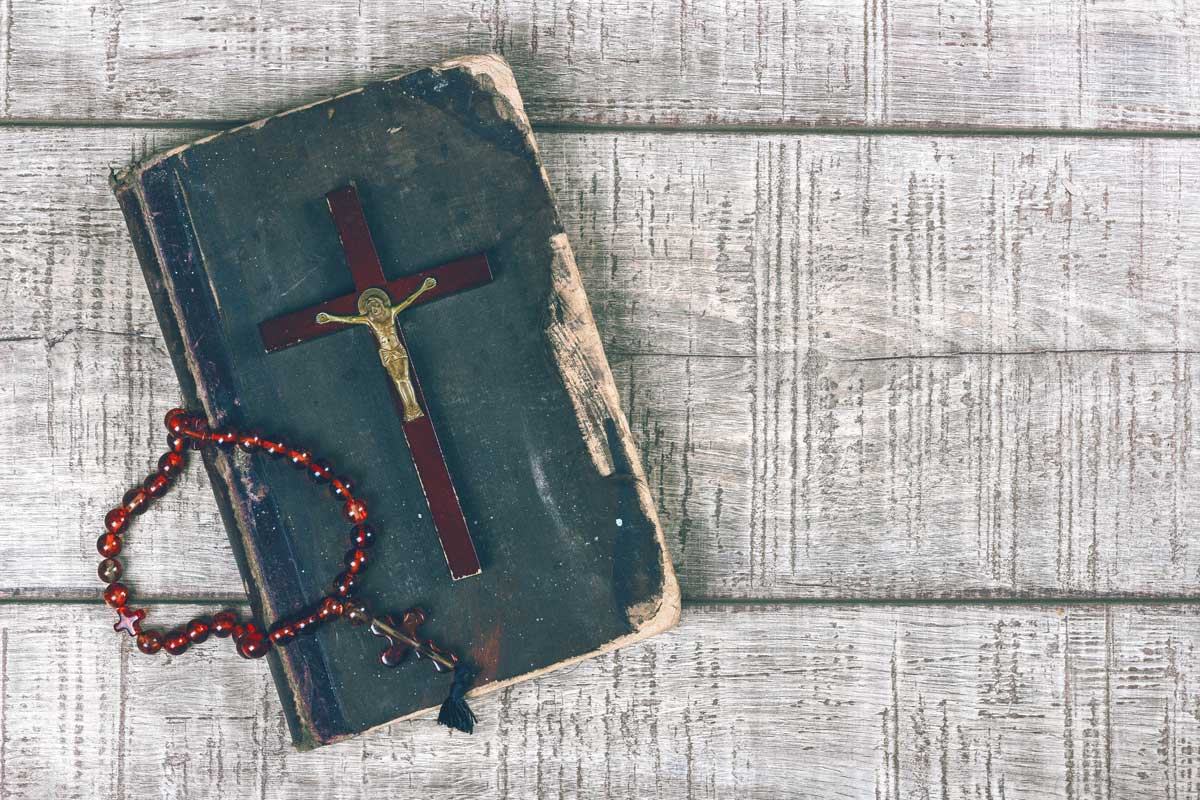
24.6—Nov/Dec 2011
Liberty, Conscience & Autonomy
How the Culture War of the Roaring Twenties Set the Stage for Today’s Catholic & Evangelical Alliance by Barry Hankins
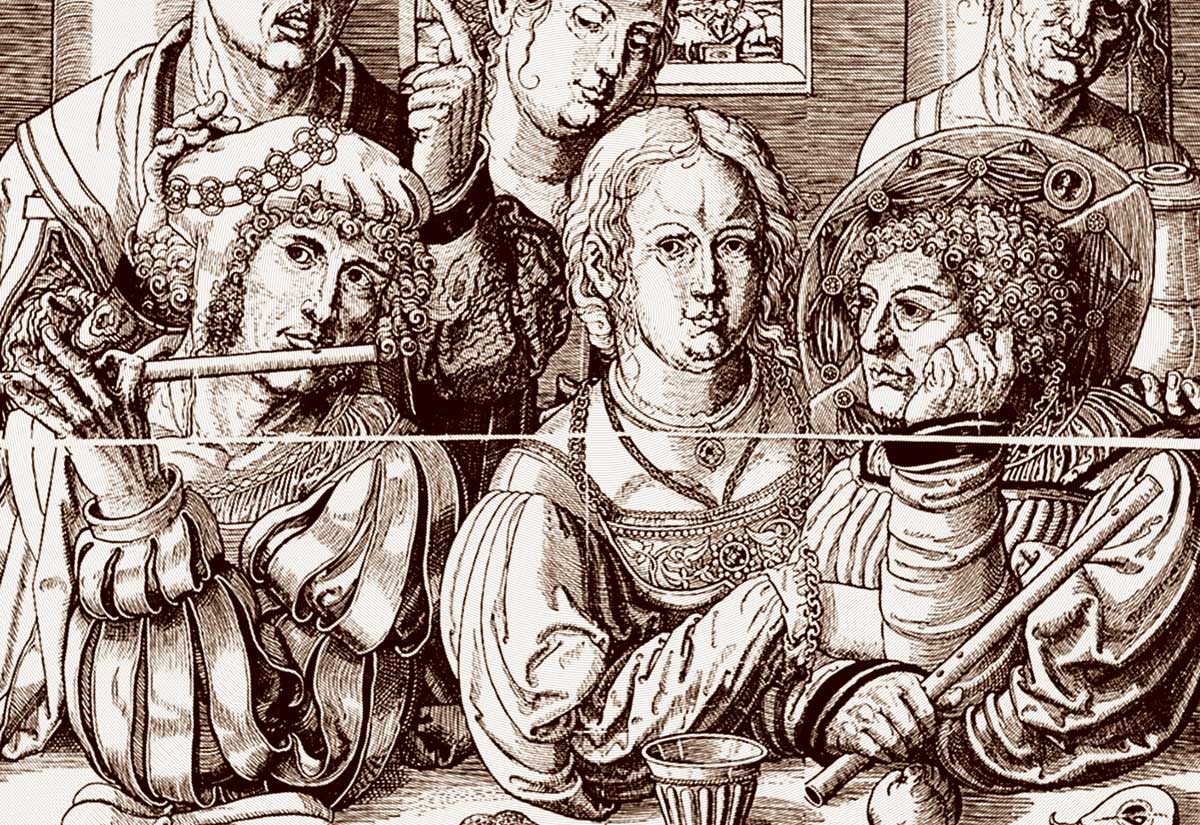
24.6—Nov/Dec 2011
Statutes of Liberty
on the Tyranny of Modern Freedom versus the Freedom of Jesus by Gillis J. Harp
more from the online archives

17.6—July/August 2004
Reality & Reluctant Science
Old Science Confronts a Formidable Challenge in the Scientific ID Movement by Jay W. Richards
calling all readers
Please Donate
"There are magazines worth reading but few worth saving . . . Touchstone is just such a magazine."
—Alice von Hildebrand
"Here we do not concede one square millimeter of territory to falsehood, folly, contemporary sentimentality, or fashion. We speak the truth, and let God be our judge. . . . Touchstone is the one committedly Christian conservative journal."
—Anthony Esolen, Touchstone senior editor
Support Touchstone
00





